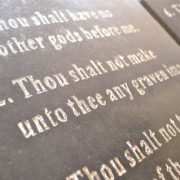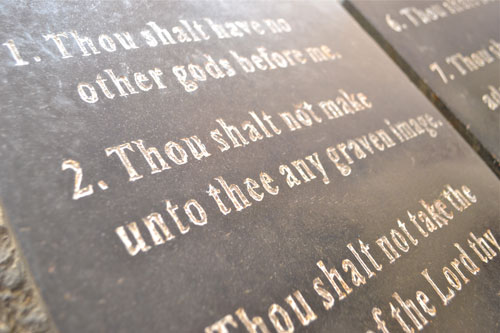How to Handle Success
Then Pharaoh said to his servants, “Can we find such a one as this, a man in whom is the Spirit of God?” Then Pharaoh said to Joseph, “Inasmuch as God has shown you all this, there is no one as discerning and wise as you.” (Genesis 41:38-39)
It’s been said that the successful executive is the one who can delegate all the responsibility, shift all the blame, and take all the credit. That’s the plan some people use to achieve success; but that strategy is like a house of cards – it won’t stand very long. Joseph’s example shows us how to achieve and handle success in a way that honors God.

Notice that timing is important to the success that God gives. Here, in Genesis 41, Joseph just then came to the pinnacle of his success; but it took him a long time to get there. Joseph had been “wasting” his time in prison the previous years; but it wasn’t a waste at all. It all had a place in God’s timing for Joseph’s success. From his youth, Joseph had the idea God had destined him for great things. But Joseph didn’t know the fulfillment of those great things would take so long.
Psalm 31:14-15 says, “But as for me, I trust in You, O Lord; I say, ‘You are my God.’ My times are in Your hand.” Can you say this also? Can you say to God, “My times are in Your hand”? So often we feel as though we are all ready for what we know God will do for us or through us; yet we must rest in the Lord, and say to Him “My times are in Your hand.”
Joseph had been promoted by Pharaoh; he had risen from the pit to the pinnacle. But we shouldn’t think Pharaoh was the one responsible for Joseph’s promotion. God was the one responsible. Joseph wasn’t waiting on Pharaoh to get out of jail; he was waiting on God. The Psalmist reminds us: “For exaltation comes neither from the east, nor from the west nor from the south. But God is the Judge: He puts down one and exalts another.” (Psalm 75:6) The credit for Joseph’s amazing rise to power did not belong to Pharaoh, or to Joseph, or much less to blind fate or circumstance. It was the fulfillment of God’s divine plan.
Another thing to notice is that Joseph had two sons, whom he named Manasseh and Ephraim (Genesis 41:51-52). Joseph lived in Egypt. He married an Egyptian woman. Joseph worked for the Egyptian Pharaoh. Yet he gave his two sons Hebrew names. This shows us that Joseph has not forgotten about God, even in his success. Many people, when they have been promoted the way Joseph was promoted, feel they no longer need God. They think that God is only good for the prison and not for the palace. We should be like Joseph, who was devoted to God no matter what – bad times and good times.
Here’s a good prayer for today: “God, give me a heart that will wait on You, and serve You faithfully, never forgetting You even when I am successful in the eyes of the world.”



















